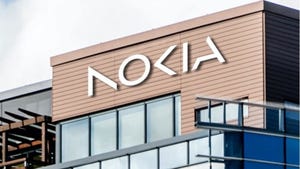Industry heavyweights NTT and Cisco have teamed up to launch a suite of repeatable IoT solutions that can be sold as a managed service.
May 22, 2023

Industry heavyweights NTT and Cisco have teamed up to launch a suite of repeatable IoT solutions that can be sold as a managed service.
Announced late last week, the partnership brings together NTT’s edge infrastructure, managed services, and IT systems integration expertise and Cisco’s IoT capabilities. Together, they promise to offer IoT services that encompass real-time data insights, enhanced security, improved decision-making, and reduced operational costs through predictive maintenance, asset tracking, and supply chain management.
In terms of industry verticals, NTT and Cisco are targeting opportunities in the manufacturing, transportation, healthcare and utility sectors, where they claim there is growing demand for edge computing and IoT solutions.
According to IoT Analytics, global enterprise IoT spending is expected to grow to $238 billion this year, from $201 billion in 2022. By 2027, it could reach as high as $483 billion.
NTT and Cisco have already begun working with Belgian public water distribution utility, Compagnie Intercommunale Liégeoise des Eaux (CISE). CISE has deployed thousands of LoRaWAN sensors on its infrastructure, giving it the visibility it needs to improve efficiency in the areas of water quality, consumption, distribution, and maintenance. And it is all being delivered by NTT and Cisco as a managed service.
“We are accelerating our IoT business initiatives to deliver a powerful portfolio of repeatable services that can be tailored to meet customer demand for these kinds of solutions,” said Devin Yaung, SVP of group enterprise IoT products and services at NTT, in a statement.
“We are excited to work together to help transition our customers to this IoT-as-a-service model so they can quickly realise the business benefits across industries and around the globe,” added Samuel Pasquier, VP of product management, industrial IoT networking, at Cisco.
Repeatable solutions promise faster deployment, while factors like price, performance, scalability and business benefits supposedly become more predictable. Conversely, bespoke implementations take longer to specify and design, and potential upsides can be undermined by unforeseen factors that affect deployment time and cost, delaying return on investment.
However, offering repeatable solutions is easier said than done, because no two businesses are identical, and so their precise requirements will vary, meaning a degree of tailoring is inevitable. The solutions themselves therefore need to address common pain points, and be backed up by a comprehensive portfolio of managed services.
This is where the respective scale of both NTT and Cisco should come into play. Both have a broad suite of products, infrastructure and professional services, giving them the assets they need to design and deliver IoT as-a-service.
Indeed, NTT said it has activated a 1,000-strong team of consultants, engineers, enterprise architects and sustainability experts from around the globe build, deploy, and manage more than 100 use cases in areas such as connected cars, fleet management, predictive maintenance, smart cities, digital twins, connected factories, etc.
“We’re doubling down on NTT’s IoT capabilities to meet customer demand,” said Yaung. “What we’re doing is pulling together our collective knowledge and skillsets, and putting the full power of NTT behind it, to better service our customers and the increasing need to outfit or retrofit their organisations with the connectivity and visibility they need to improve day-to-day business operations.”
Get the latest news straight to your inbox. Register for the Telecoms.com newsletter here.
About the Author(s)
You May Also Like








.png?width=300&auto=webp&quality=80&disable=upscale)


_1.jpg?width=300&auto=webp&quality=80&disable=upscale)


.png?width=800&auto=webp&quality=80&disable=upscale)